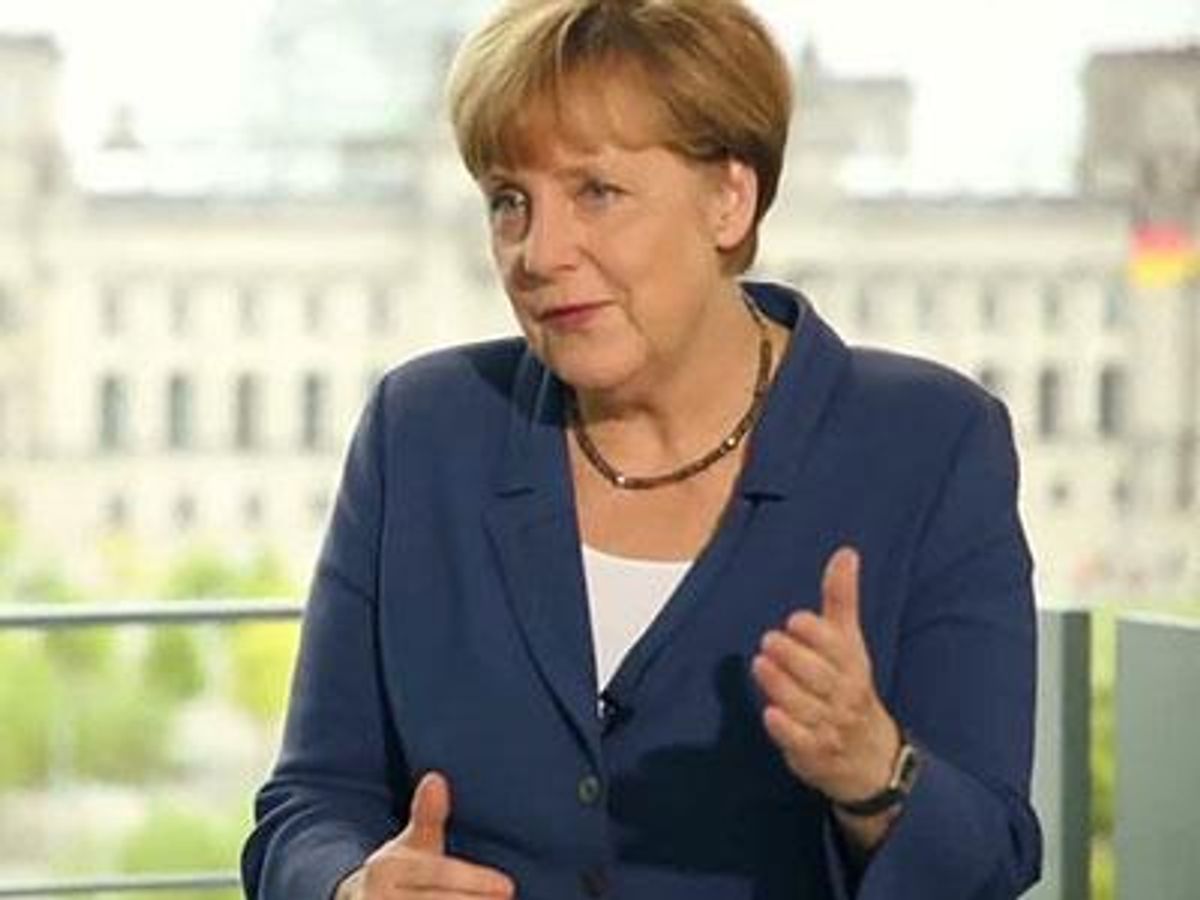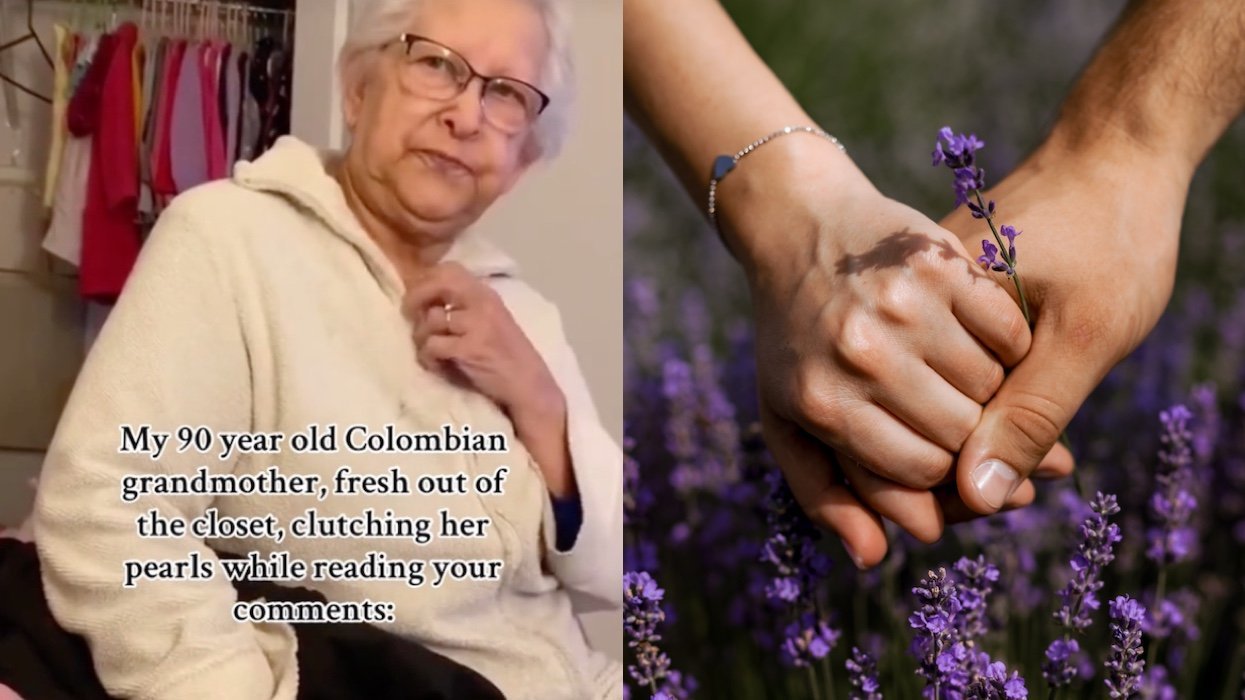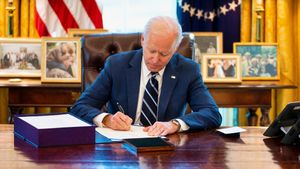German Chancellor Angela Merkel is against anti-LGBT discrimination -- except when it comes to the word marriage.
In her first YouTube interview, conducted by LeFloid (Florian Mundt), a star on the online video service, Merkel asserted, "Marriage is the coexistence between a man and a woman," but added, "Wherever we still see discrimination, we will challenge it further," according to a translation by German news site Deutsche Welle. The interview was conducted Friday in German, using questions submitted by LeFloid's viewers, and posted to YouTube Monday without subtitles.
Merkel said she supported civil partnerships for same-sex couples, which Germany has offered since 2001. The scope of civil partnerships has expanded over the years to the point that they offer almost all the rights of marriage. There are some limitations on adoption rights, but other than that, "the major difference that remains is the use of the term 'marriage' itself," notes an earlier Deutsche Welle article.
LeFloid challenged Merkel on her insistence on separate but (largely) equal unions for same-sex and opposite-sex couples, but she reiterated that she was against discrimination. "So you could say: No to discrimination, but we'll keep differentiating between the two," LeFloid said, as translated by Gay Star News.
Other members of Merkel's political party, the Christian Democratic Union, have opposed making marriage available to same-sex couples. "If we make everything the same, then marriage won't be special anymore," CDU politician Thomas Strobl said in May, according to Deutsche Welle. His comment came around the time Ireland legalized same-sex marriage by popular vote, leading German activists to renew their push for marriage equality.
Such a push will probably not succeed anytime soon, despite widespread support for marriage equality among Germans, Deutsche Welle notes. Unlike Ireland, Germany and most other countries cannot change marriage laws through a referendum. Also, German states, unlike U.S. states, do not have power to change these laws. So in Germany, the only option is a vote in the nation's Parliament, where the ruling coalition of the CDU and two other parties agreed in 2013 not to address the matter over the next few years. One of the minority parties, however, could introduce marriage equality legislation.
You can view LeFloid's interview with Merkel below.

















































































